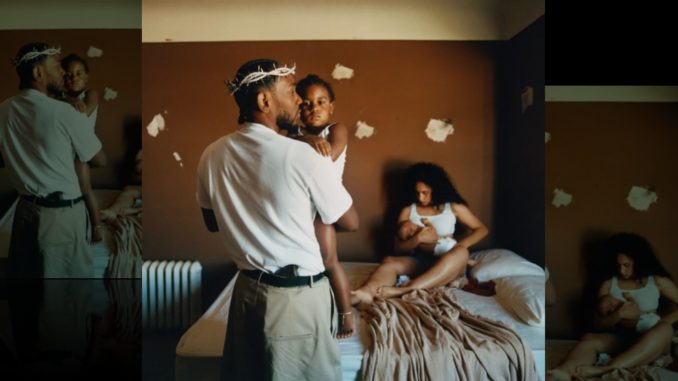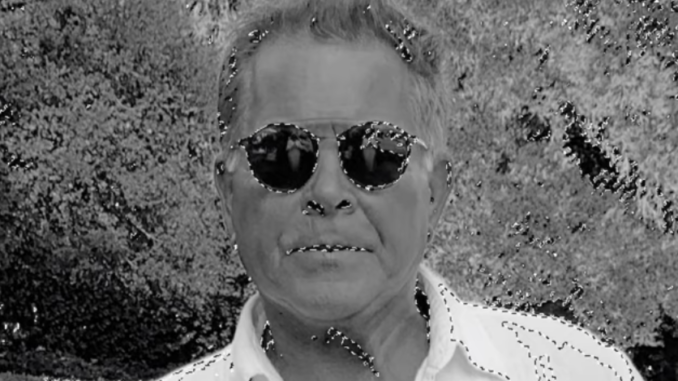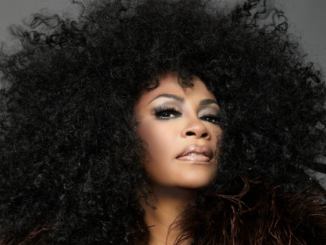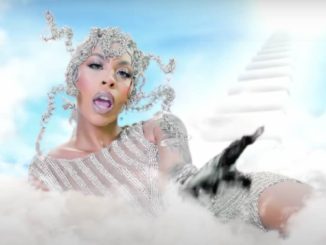
Hip hop is on life support and “the culture” is being traumatized by the constant indictments, deaths, and spoiled moments. Will Kendrick Lamar’s return with his effort Mr. Morale & The Big Steppers do anything to save the genre? The Compton rapper appropriately released his album on Friday the 13th after a soft hiatus that last left fans with his 2017 critically acclaimed project DAMN. But unlike his counterparts who have entertained “bullsh-t and gossip” as the rapper calls it in the past five years, Kendrick is coming back on a mission and with a message.
Class is in session and the lessons revolve around what TLC labeled the “Case of the Fake People.” With 18 tracks total on the two-part album, Kendrick makes many compelling admissions such as needing therapy, having affairs with white women for revenge, and the pressure of being a public persona hailing from humble beginnings.
Listen to Mr. Morale & The Big Steppers:
The “Alright” rapper mostly sways away from the trendy bass-heavy, melodic southern beats and conventional West Coast sounds for a stylistic, genre-mixing production reminiscent of the great Andre 3000 of Outkast fame and the 1990s hip hop era, giving the project a noticeable advantage over an array of music currently on the market. Each track is laced with a complicated immersion of various rap personalities that Kendrick takes on, as he does on the upbeat “N95,” and a resounding foley of tap dancing parsed throughout the album.
While Kendrick responsibly uses his platform to dispel the illusion of rap music and expose the exploitative traps of flashy expenditures and counterintuitive thinking, there’s an underlying angst that pains him, and it’s probably because he instinctively knows that he’s preaching to the choir.
This is apparent in the contribution from Kodak Black on “Rich (Interlude),” a poetically delivered revelation that shows the dichotomy of glorifying “gang, gang” while aspiring for a better life. It’s a running theme throughout, while Kendrick effortlessly transitions from root causes of his state of being on songs like “Father Time,” to symptoms on songs like “Worldwide Steppers,” and “Rich Spirit.”
“When Kanye got back with Drake / I was slightly confused. Guess I’m not mature as I think / Got some healing to do.”
– “Father Time,” Mr. Morale & The Big Stepper
Then, there’s the added touch of his storytelling capabilities that revel in the sins of his upbringing and the subsequent impact on his community, as he did with the starter track “United in Grief,” for instance.
“We Cry Together” falls in this category, giving listeners a front row seat to a spat between lovers in the hood. Featuring Zola actress Taylour Paige, the groundbreaking track delves into a painstakingly vulgar conversation between Black men and women. Honestly, it recalls the theatrical audio recordings of Notorious B.I.G. and other 1990s artists that showed the fragile dynamic of relationships via speaking segments. Kendrick attempts to smooth over the musical altercation with the smooth, mid-tempo “Purple Hearts” featuring Summer Walker and Ghostface Killah, but “We Cry Together” leaves an unforgettable lasting impression.
“See you the reason why strong women f–ked up / Why they say its a man’s world / See you the reason for Trump / You the reason we overlooked, underpaid, underbooked, under shame.”
– “We Cry Together,” Mr. Morale & The Big Stepper
Into the second half of Mr. Morale & The Big Stepper, Kendrick begins with “Count Me Out,” another journal entry turned letter to his doubters. He follows up with a slower “Crown” that maintains his stance as a public persona as he raps, “I can’t please everybody.” Kodak Black returns for a second time on the head-bobbing “Silent Hill” backed by what appears to be gaming sound effects. His cuzzo, Baby Keem, who is silently listed on the writing credits on various songs, is the star of “Savior (Interlude),” where he offers his signature, versatile lyricism right before he joins Kendrick and Sam Dew on the hard-hitting lay up “Savior.”
From there, Kendrick goes into another hemisphere of real and raw thought that hasn’t been fully explored since Tupac Shakur, with a few exceptions here and there. On “Auntie Diaries,” he simmers on the reality of homophobia within his own family as he tells the story of an aunt who transitioned into a man. Then, there’s the Beth Gibbons assisted “Mother I Sober,” a cinematically tragic story of generational molestation where he renders a childhood account of being traumatized by an incident.
“Aye, peace maker but I’m not naive, brother / Aye, gotta watch your homies and police, brother.”
– “Rich Spirit,” Mr. Morale & The Big Stepper
He raps, “A conversation not being addressed in black families / The devastation haunting generations and humanity / They raped our mothers, then they raped our sisters, then they made us watch / Then made us rape each other, psychotic torture between our lives / We ain’t recovered, still living as victims in the public eyes / Who pledge allegiance, every other brother has been compromised / I know the secrets, every other rapper sexually abused / I see them daily burying they pain in chains and tattoos.”
Needless to say, Kendrick Lamar’s latest effort is more than a work of art. Mr. Morale & The Big Stepper is an unsuppressed palette of real life experiences that doesn’t pander to the pretentious wave of validation seeking and smoking mirrors. Is it enough to save hip hop? Maybe not. But, it does provide solace that not every rapper has traded [their] soul for what glitters — and maybe, just maybe, some of the ones thinking about it will reconsider.



